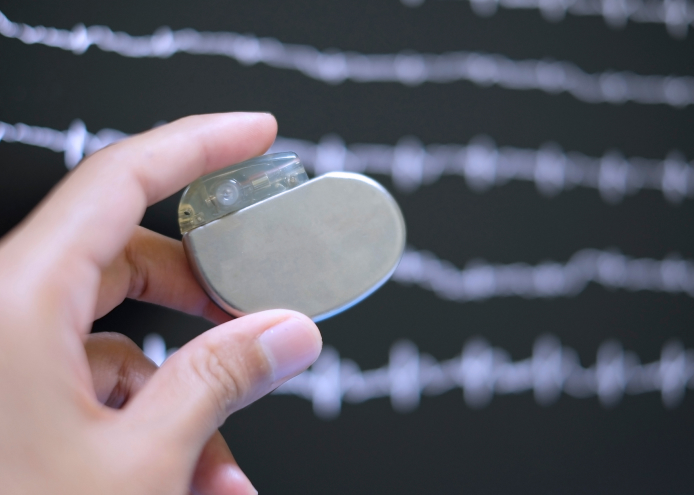Picture this: A tiny device that brings your heart’s beat back to a steady pace. That is what a pacemaker does. It is a lifeline for those with heart troubles. These devices send small zaps of electricity to keep your heart going right. Let us dive into how a pacemaker might just be what you need for a stronger heart.
Understanding the Need for a Permanent Pacemaker
Ever felt your heart skip a beat or race like crazy? That is when a pacemaker comes in. It is a small device that takes care of arrhythmic or abnormal heartbeats.
You might require a permanent pacemaker implantation in Chennai if you have heart rhythm issues. Generally, your heart has its own natural spark plug- the Sinus Node. However, sometimes, the node fails to propagate the electrical impulses required to generate a heartbeat.
That is where a pacemaker steps in. It gives your heart the right cues to keep the beat. People with pacemakers often feel more lively. They can do more and enjoy life. This device helps keep your heart ticking without missing a beat.
Recognising Symptoms of Heart Rhythm Disorders
Feeling dizzy, shortness of breath, or passing out could be These signs could indicate an abnormal heart rhythm. However, not all weird heartbeats need a pacemaker. Some are no big deal. When your heart's natural rhythm is off, a pacemaker can help. Paying attention to your body's signals can help you and your doctor determine the best course of action.
How Permanent Pacemakers Function and Save Lives
Your heart has got its own natural rhythm maker. But if it quits on you, a pacemaker can step up. It is a little battery-powered device that goes into your chest. It sends tiny zaps to your heart to keep the rhythm steady.
There are two kinds of pacemakers- one that zaps only when needed and another that keeps a steady zap rate. It is like having a mini conductor for your heart’s orchestra. They implant it beneath the skin and connect wires to the heart. Precise calibration ensures the device works perfectly and prevents abnormal heart rhythms.
Exploring the Different Types of Permanent Pacemakers
Not all heart problems are the same, so pacemakers come in different styles. You have got single, dual, and even three-wire pacemakers for trickier heart issues. The single-wire kind is when just one part of your heart needs help. The two-wire kind helps your heart's upper and lower parts talk better. And for folks with serious heart failure, the three-wire kind helps your heart pump better. Knowing these options helps you see what might work for you. Next, we will peek at how they put these gadgets in.
The Permanent Pacemaker Implantation Procedure
Getting ready for a pacemaker? Knowing what happens can make it less scary. Here are the details:
- Before you go in, your doctor will discuss your meds. You might need to switch things up, but only if your doctor says so. On the big day, you will be hooked up to a monitor, and they will give you something to help you relax.
- They will make a small cut near your collarbone to put the pacemaker wires in. These wires get screwed in place. Then, they check to make sure it all works. Finally, they tuck the pacemaker under your skin and stitch you up.
- They will adjust the pacemaker's settings and test it in the OR.
- The whole thing takes about an hour, but plan to be there longer. You might even stay overnight.
Once It is all done, you will get the lowdown on taking care of yourself as you heal.
Recovery and Lifestyle Adjustments Post Pacemaker Implantation
After your pacemaker is in, you will be asked to:
- Avoid driving for a couple of weeks.
- Schedule checkups to know how everything is going.
You can return to normal life quickly, but you should take it easy at first. Yearly checkups for your pacemaker are a must. And remember, living healthy is still up to you.
Adapting to Life with a Permanent Pacemaker
With a pacemaker, life goes on with a few tweaks. Health checks keep tabs on your pacemaker. It should last 5 to 15 years. But It is not a shield against heart disease. Eating right, exercising, and adopting a healthy lifestyle are the best ways to take charge of your health.
Understanding Risks and Complications of Permanent Pacemakers
If you are considering getting a pacemaker, know the risks, like infections or a sore spot where they put it in. There could be blood clots or other rare troubles. Fortunately, these operations are standard, and the professionals are there to support you. Discuss any concerns with your doctor.
Navigating Technological Interactions with Permanent Pacemakers
In our world full of gadgets, know how they might mess with your pacemaker. Keep your smartphone and its chargers a good distance away. like 6 inches or more. Got kitchen appliances like induction hobs? Stay about 2 feet away. These tips keep your pacemaker ticking right.
Empowering Your Heart Rhythm with Precision and Care
With a pacemaker, your heartbeat stays on track. Adjusting to it is just part of the drill. For more on keeping your heart strong, talk to the best electrophysiologist in Chennai. Give your heart the power to beat steadily for the rest of your life.

